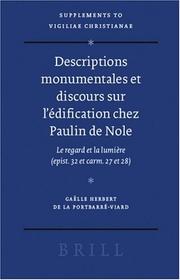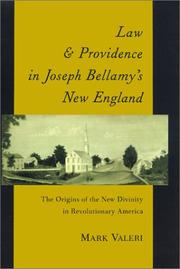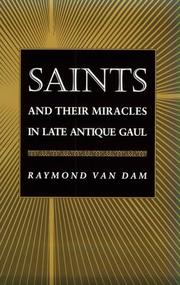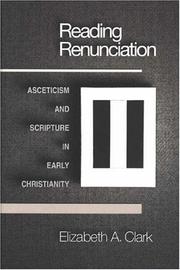| Listing 1 - 8 of 8 |
Sort by
|
Book
ISBN: 9783796541292 9783796540578 3796540570 3796541291 Year: 2019 Publisher: Basel Schwabe Verlag
Abstract | Keywords | Export | Availability | Bookmark
 Loading...
Loading...Choose an application
- Reference Manager
- EndNote
- RefWorks (Direct export to RefWorks)
Paulinus von Nola steht heute im Schatten verschiedener Zeitgenossen, die ihn im Laufe der Jahrhunderte an Bekanntheit überrundet haben. Doch zu Lebzeiten suchten Autoritäten wie Augustinus von Hippo, Ambrosius von Mailand und Hieronymus den Kontakt zu dem gallorömischen Aristokraten, der sich in der zweiten Hälfte des 4. Jahrhunderts zu einem Christentum asketischer Prägung bekehrte, eine vielversprechende Beamtenkarriere abbrach, seine umfangreichen Ländereien verkaufte und nach Nola in Kampanien zog, um dort ein Leben im Dienste Christi zu führen. Paulinus stellt damit eine Schlüsselfigur für das Verständnis der Umbrüche, Transformationen und Kontinuitäten seiner Zeit dar, die mit der reichsweiten Verbreitung des Christentums, dem Aufkommen der Reliquienverehrung und dem Erstarken monastischer Bewegungen die Grundlegung fundamentaler Elemente der europäischen Kultur des Mittelalters und der Neuzeit sah. In Nola lag der heilige Felix bestattet, der dort im 3. Jh. als confessor und Bischof gewirkt hatte. Schon vor Paulinus’ Ankunft hatte sich deshalb eine lokale Heiligenverehrung etabliert. Paulinus baute die Stätte prächtig aus: Er renovierte bestehende Gebäude und errichtete eine neue Basilika; auch Unterkünfte für Pilger wurden eingerichtet. Zusätzlich zu den Gebeinen des heiligen Felix beschaffte Paulinus die Reliquien berühmter Märtyrer. Mit diesen Maßnahmen schuf Paulinus die materiellen Voraussetzungen dafür, aus Nola einen bedeutenden Pilgerort in Italien zu machen. Nun aber musste das Zentrum beworben werden; potenzielle Besucher mussten erfahren, was es bei Paulinus zu sehen und zu erleben gab und weshalb sich eine Reise nach Nola zum heiligen Felix lohnte. Die Dissertation zeigt an einer Vielzahl von Beispielen auf, wie Paulinus in den Briefen an seine christlich-aristokratischen Bekannten die Vorteile und den zu erwartenden (himmlischen) Gewinn eine Pilgerreise nach Nola mit sich brachte. Am Todestag des Felix fand in Nola das Fest zu Ehren des Heiligen statt. Für diesen für ihn wichtigsten Tag im Jahr verfasste Paulinus jährlich ein Natalicium, in dem er aktuelle Wundertaten des Heiligen erzählte und das er vor versammelter Festgemeinde vortrug. Auch diese Gedichte, von denen uns 14 erhalten sind, spielen eine tragende Rolle in Paulinus’ Werbestrategie: Die Dissertation zeigt auf, wie der provinzielle Heilige in ihnen als mächtiger patronus im Dies- und Jenseits konstruiert wird. Diese Facetten der Werbung für das Pilgerzentrum in Nola und seinen endemischen Heiligen werden ergänzt durch Beobachtungen dazu, wie Paulinus sich selbst als Asketen, Dichter und Freund inszeniert und damit auch die eigene Person zum Gegenstand seiner Werbung macht. Dabei wird deutlich, dass Paulinus repräsentativ ist für die theoretische und praktische Etablierung der Heiligenverehrung und des Reliquienkultes und so zusammen mit Gesinnungsgenossen wie Ambrosius von Mailand, Victricius von Rouen und Sulpicius Severus am Anfang einer umfassenden und zukunftsweisenden Bewegung steht, die von der Spätantike über das Mittelalter bis zur Gegenwart reicht.
Christian pilgrims and pilgrimages --- History. --- Paulinus, --- Felix, --- Nola (Italy) --- Antiquities. --- Nola --- Paulinus ep. Nolanus --- Classical texts --- Italy --- Paulinus von Nola
Book
ISBN: 3110418185 3110418088 9783110418088 9783110418187 9783110418095 3110418096 9783110376326 3110376326 Year: 2016 Publisher: Boston
Abstract | Keywords | Export | Availability | Bookmark
 Loading...
Loading...Choose an application
- Reference Manager
- EndNote
- RefWorks (Direct export to RefWorks)
Using light as fil rouge reuniting theology and ritual with the architecture, decoration, and iconography of cultic spaces, the present study argues that the mise-en-scène of fifth-century baptism and sixth-century episcopal liturgy was meant to reproduce the luminous atmosphere of heaven. Analysing the material culture of the two sacraments against common ritual expectations and Christian theology, we evince the mannerin which the luminous effect was reached through a combination of constructive techniques and perceptual manipulation. One nocturnal and one diurnal, the two ceremonials represented different scenarios, testifying to the capacity of church builders and willingness of Late Antique bishops to stage the ritual experience in order to offer God to the senses.
Worship --- Liturgies, Early Christian. --- Baptism --- Liturgy and architecture. --- Light in architecture --- Light --- Architecture --- Lighting, Architectural and decorative --- Architecture and liturgy --- Liturgical architecture --- Early Christian liturgies --- Church history --- History --- Religious aspects --- Christianity. --- Ravenna (Italy) --- Ravenne (Italy) --- Raṿeno (Italy) --- Church history. --- Paulinus, --- Di Nola, Paolino, --- Meropius Pontius Anicius Paulinus, --- Nola, Paulinus of, --- Paolino, --- Paulin, --- Paulinus Nolanus, --- Pontius Meropius Anicius Paulinus, --- Pontius Meropius Paulinus Nolanus, --- Theophany, Light, Baptism, Liturgy.

ISSN: 0920623X ISBN: 9004151052 9789004151055 9786611398606 1281398608 9047409515 9789047409519 Year: 2006 Volume: 70 Publisher: Leiden : Brill,
Abstract | Keywords | Export | Availability | Bookmark
 Loading...
Loading...Choose an application
- Reference Manager
- EndNote
- RefWorks (Direct export to RefWorks)
Pontius Meropius Paulinus (ca 353-431), one of the greatest poets of Late Latin Poetry and author of an important correspondence, was born in a wealthy family of the Gallo-Roman aristocracy in Bordeaux. After his spectacular conversion to asceticism and his sacerdotal ordination, he set up definitively as a monk in Italy, in Campanian Nola besides the tomb of St. Felix. There, Paulinus devoted his considerable fortune to the restructuring of the monumental complex which has appeared around this holy place, since the early years of the fourth century and mainly a church. This book is a literary and spiritual study of the description of this complex (carm. 27 and 28 and epist. 32), an other way of edification (the edification of the soul in temple for her creator.) A careful comparison with archaeological testimonies must help estimate the status of Paulinus’monumental descriptions. *** Pontius Meropius Paulinus (vers 353-431), un des plus grands poètes de l’Antiquité tardive, auteur d’une importante correspondance, est issu d’une riche famille de l’aristocratie bordelaise. Après sa conversion spectaculaire à l’ascétisme et son ordination sacerdotale, il vint s’installer définitivement en tant que moine à Nole en Campanie auprès de la tombe de saint Félix. Là Paulin consacra sa fortune considérable à la restructuration du complexe monumental apparu autour de ce saint lieu, depuis les premières années du quatrième siècle, principalement une église. Ce livre est une étude littéraire et spirituelle de la description de ce complexe (carm. 27 et 28; epist. 32), une autre sorte d’édification (celle de l’âme en temple pour son créateur). Une comparaison prudente avec les témoignages archéologiques permettra d’évaluer le statut des descriptions monumentales de Paulin.
Architectural criticism --- Architecture, Early Christian --- Critique d'architecture --- Architecture paléochrétienne --- Early works to 1800 --- Ouvrages avant 1800 --- Paulinus, --- Basilica di S. Felice (Cimitile, Italy) --- Architectural criticism. --- 276 =71 PAULINUS NOLANUS --- Latijnse patrologie--PAULINUS NOLANUS --- Architecture paléochrétienne --- Paulinus of Nola --- Criticism and interpretation --- Architecture [Early christian ] --- Italy --- Basilica di San Felice --- Basiliques --- Églises --- Paulin de Nola --- Cimitile (Italie) --- Basilica di San Felice in Pincis --- Basilica di San Felice in Pincis. --- Basilica di San Felice. --- Early Christian architecture --- Architecture --- Criticism --- Di Nola, Paolino, --- Meropius Pontius Anicius Paulinus, --- Nola, Paulinus of, --- Paolino, --- Paulin, --- Paulinus Nolanus, --- Pontius Meropius Anicius Paulinus, --- Pontius Meropius Paulinus Nolanus, --- Basilica di San Felice (Cimitile, Italy) --- Santuario di Cimitile (Cimitile, Italy) --- Paulin de Nole --- Architecture, Early Christian - Italy - Early works to 1800. --- Paulinus, - of Nola, Saint, - ca. 353-431. --- Architecture, Early Christian. --- Criticism and interpretation. --- Italy. --- Italia --- Italian Republic --- Italianska republika --- Italʹi͡anskai͡a Rėspublika --- Italie --- Italien --- Italii͡ --- Italii͡a Respublikasi --- Italiĭsʹka Respublika --- Itālija --- Itālijas Republika --- Italijos Respublika --- Italikē Dēmokratia --- Īṭāliy --- Italiya Respublikasi --- It'allia --- It'allia Konghwaguk --- İtalya --- İtalya Cumhuriyeti --- Iṭalyah --- Iṭalye --- Itaria --- Itaria Kyōwakoku --- Jumhūrīyah al-Īṭālīyah --- Kgl. Italienische Regierung --- Königliche Italienische Regierung --- Laško --- Lýðveldið Ítalía --- Olasz Köztársaság --- Olaszország --- Regno d'Italia --- Repubblica italiana --- Republiḳah ha-Iṭalḳit --- Włochy --- Yidali --- Yidali Gongheguo --- Églises

ISBN: 1280527161 0195358848 142940583X 9781429405836 9786610527168 6610527164 0195086015 9780195086010 0197739903 Year: 2023 Publisher: New York ; Oxford University Press,
Abstract | Keywords | Export | Availability | Bookmark
 Loading...
Loading...Choose an application
- Reference Manager
- EndNote
- RefWorks (Direct export to RefWorks)
This study of religious thought and social life in early America focuses on the career of Joseph Bellamy (1719-1790), a Connecticut minister noted chiefly for his role in the New Divinity - the influental theological movement that evolved from the writings of Jonathan Edwards.
New Divinity theology --- Providence and government of God --- God --- New Divinity (Movement) --- New England theology --- History. --- History of doctrines --- Providence and government --- Sovereignty --- Bellamy, Joseph, --- Paulinus, --- Second neighbour, --- New England --- Northeastern States --- Church history
Book
ISBN: 9780520295773 9780520295780 0520295773 0520968425 0520295781 9780520968424 Year: 2019 Publisher: Berkeley, CA : University of California Press,
Abstract | Keywords | Export | Availability | Bookmark
 Loading...
Loading...Choose an application
- Reference Manager
- EndNote
- RefWorks (Direct export to RefWorks)
After centuries of near silence, Latin poetry underwent a renaissance in the late fourth and fifth centuries CE evidenced in the works of key figures such as Ausonius, Claudian, Prudentius, and Paulinus of Nola. This period of resurgence marked a milestone in the reception of the classics of late Republican and early imperial poetry. In Classicism and Christianity in Late Antique Latin Poetry, Philip Hardie explores the ways in which poets writing on non-Christian and Christian subjects used the classical traditions of Latin poetry to construct their relationship with Rome's imperial past and present, and with the by now not-so-new belief system of the state religion, Christianity. The book pays particular attention to the themes of concord and discord, the ";cosmic sense"; of late antiquity, novelty and renouatio, paradox and miracle, and allegory. It is also a contribution to the ongoing discussion of whether there is an identifiably late antique poetics and a late antique practice of intertextuality. Not since Michael Robert's classic The Jeweled Style has a single book had so much to teach about the enduring power of Latin poetry in late antiquity.
Christian poetry, Latin --- Political poetry, Latin --- Christian poetry, Latin. --- Literature. --- Political poetry, Latin. --- History and criticism. --- Rome --- Rome (Empire). --- In literature. --- History and criticism --- In literature --- Christian poetry, Latin - History and criticism --- Political poetry, Latin - History and criticism --- Rome - In literature --- allegory. --- antique poetics. --- antiquity. --- ausonius. --- christian subjects. --- classical traditions. --- classicism. --- classics. --- claudian. --- concord. --- cosmic sense. --- discord. --- imperial past. --- imperial poetry. --- intertextuality. --- late republican. --- latin poetry. --- non christian. --- novelty. --- paradox and miracle. --- paulinus of nola. --- poets. --- prudentius. --- relationship. --- renaissance. --- renouatio. --- rome. --- state religion.
Book
ISBN: 9780691143576 0691143579 9786612976377 1782685553 1400838029 1282976370 9781400838028 Year: 2011 Publisher: Princeton, N.J. Princeton University Press
Abstract | Keywords | Export | Availability | Bookmark
 Loading...
Loading...Choose an application
- Reference Manager
- EndNote
- RefWorks (Direct export to RefWorks)
In this brief and incisive book, Pulitzer Prize-winning historian Garry Wills tells the story of the Confessions--what motivated Augustine to dictate it, how it asks to be read, and the many ways it has been misread in the one-and-a-half millennia since it was composed. Following Wills's biography of Augustine and his translation of the Confessions, this is an unparalleled introduction to one of the most important books in the Christian and Western traditions. Understandably fascinated by the story of Augustine's life, modern readers have largely succumbed to the temptation to read the Confessions as autobiography. But, Wills argues, this is a mistake. The book is not autobiography but rather a long prayer, suffused with the language of Scripture and addressed to God, not man. Augustine tells the story of his life not for its own significance but in order to discern how, as a drama of sin and salvation leading to God, it fits into sacred history. "We have to read Augustine as we do Dante," Wills writes, "alert to rich layer upon layer of Scriptural and theological symbolism." Wills also addresses the long afterlife of the book, from controversy in its own time and relative neglect during the Middle Ages to a renewed prominence beginning in the fourteenth century and persisting to today, when the Confessions has become an object of interest not just for Christians but also historians, philosophers, psychiatrists, and literary critics. With unmatched clarity and skill, Wills strips away the centuries of misunderstanding that have accumulated around Augustine's spiritual classic.
Augustine of Hippo --- Christian saints --- Biography --- History and criticism. --- Augustine, --- Augustine. --- Augustine, --Saint, Bishop of Hippo. --Confessiones. --- Christian saints - Algeria - Hippo (Extinct city) - Biography - History and criticism. --- Christian saints - Algeria - Hippo (Extinct city) - History and criticism. --- Christian saints --Algeria --Hippo (Extinct city) --Biography --History and criticism. --- Religion --- Philosophy & Religion --- Christianity --- Saints --- Canonization --- RELIGION / Christianity / History. --- Academic skepticism. --- Adolf von Harnack. --- Ageless Wisdom. --- Anguish. --- Asceticism. --- Astrology. --- Augustine of Hippo. --- Autobiography. --- Being and Time. --- Bible. --- Bildungsroman. --- Book of Confessions. --- Book. --- Celibacy. --- Christian. --- Christianity. --- Church Fathers. --- Confessions (Augustine). --- Consciousness. --- Consecration. --- Creation myth. --- Criticism. --- Dasein. --- Donatism. --- Ecclesiology. --- Edmund Husserl. --- Examination of conscience. --- Existentialism. --- Explanation. --- Facsimile. --- False prophet. --- Forgetting. --- Gervasius and Protasius. --- Gifford Lectures. --- God. --- Goethe's Faust. --- Hannah Arendt. --- Hedonism. --- Henri Bergson. --- Hierius. --- His Family. --- Historicity. --- Historiography. --- Jacques Derrida. --- Jean-François Lyotard. --- Jean-Jacques Rousseau. --- John Colet. --- Late Antiquity. --- Lecture. --- Ludwig Wittgenstein. --- Manichaeism. --- Marian devotions. --- Martin Heidegger. --- Narrative. --- Neoplatonism. --- Noam Chomsky. --- On Memory. --- On the Trinity. --- Oral tradition. --- Parchment. --- Paulinus of Nola. --- Pelagianism. --- Pelagius. --- Perversion. --- Phenomenon. --- Philosopher. --- Philosophy. --- Plotinus. --- Postmodernism. --- Predestination. --- Psalms. --- Psychobiography. --- Rebecca West. --- Rebuke. --- Religion. --- Religious text. --- Renunciation. --- Rhetoric. --- Romanticism. --- Rundown (Scientology). --- Saint Monica. --- Scholasticism. --- Septuagint. --- Sermon. --- Shorthand. --- Simplician. --- Specific gravity. --- Superstition. --- Søren Kierkegaard. --- Tanakh. --- The Christian Community. --- The First Man. --- Theft. --- Theology. --- Thomas Aquinas. --- Thought. --- Thérèse of Lisieux. --- Treatise. --- Valentinian (play). --- Writing.

ISBN: 0691021120 0691032335 9786613891181 1400821142 1283578735 9780691032337 9780691021126 9781400821143 1400819318 Year: 1993 Publisher: Princeton Princeton university press
Abstract | Keywords | Export | Availability | Bookmark
 Loading...
Loading...Choose an application
- Reference Manager
- EndNote
- RefWorks (Direct export to RefWorks)
Saints' cults, with their focus on miraculous healings and pilgrimages, were not only a distinctive feature of Christian religion in fifth-and sixth-century Gaul but also a vital force in political and social life. Here Raymond Van Dam uses accounts of miracles performed by SS. Martin, Julian, and Hilary to provide a vivid and comprehensive depiction of some of the most influential saints' cults. Viewed within the context of ongoing tensions between paganism and Christianity and between Frankish kings and bishops, these cults tell much about the struggle for authority, the forming of communities, and the concept of sin and redemption in late Roman Gaul. Van Dam begins by describing the origins of the three cults, and discusses the career of Bishop Gregory of Tours, who benefited from the support of various patron saints and in turn promoted their cults. He then treats the political and religious dimensions of healing miracles--including their relation to Catholic theology and their use by bishops to challenge royal authority--and of pilgrimages to saints' shrines. The miracle stories, collected mainly by Gregory of Tours, appear in their first complete English translations.
Christian pilgrims and pilgrimages --- Christian saints --- Saints chrétiens --- History --- Cult --- Culte --- Histoire --- Gaul --- Gaule --- Religious life and customs --- Vie religieuse --- History. --- 235.3*23 --- Hagiografie: miracula --- 235.3*23 Hagiografie: miracula --- Saints chrétiens --- Pilgrims and pilgrimages, Christian --- Christian shrines --- Pilgrims and pilgrimages --- Saints --- Canonization --- Cult&delete& --- Christian saints - Cult - France - History --- Christian pilgrims and pilgrimages - France - Tours - History --- Martinus ep. Turonensis --- Hilarius ep. Pictaviensis --- Iulianus ep. Cenomannensis --- Gregorius ep. Turonensis --- Aeneid. --- Alternative medicine. --- Amulet. --- Archdeacon. --- Ariamir. --- Arianism. --- Augustine of Hippo. --- Austrasia. --- Baptism of the Lord. --- Brioude. --- Burgundians. --- Burial. --- Caesarius. --- Catholicism. --- Chararic (Frankish king). --- Chlothar I. --- Chlothar II. --- Christianity. --- Church Fathers. --- Clergy. --- Confidant. --- Consecration. --- Deference. --- Desiderius. --- Dysentery. --- Easter. --- Eternal life (Christianity). --- Exorcism. --- Falernian wine. --- Folk healer. --- Fredegund. --- Generosity. --- Georgius. --- God. --- Great martyr. --- Gregorius. --- Gregory of Tours. --- Hagiography. --- Helladius. --- Heresy. --- His Family. --- Historian. --- Humility. --- Intercession. --- Jews. --- Late Antiquity. --- Lent. --- Leprosy. --- Literary criticism. --- Literature. --- Magnus Maximus. --- Marmoutier. --- Martin of Tours. --- Martyr. --- Matricula. --- Merovech. --- Merovingian dynasty. --- Monastery. --- Old Testament. --- Paganism. --- Palladius of Saintes. --- Patron saint. --- Paulinus of Nola. --- Penitential. --- Persecution. --- Peter and Paul. --- Piety. --- Poitiers. --- Pope Gregory I. --- Potion. --- Predestination. --- Procession. --- Putrefaction. --- Radegund. --- Relic. --- Reliquary. --- Remigius. --- Resurrection of the dead. --- Righteousness. --- Rite. --- Roman Gaul. --- Saint. --- School of Graduate Studies (SPS). --- Secularism. --- Self-healing. --- Silvester. --- Slavery. --- Spirituality. --- Suffragan bishop. --- Sulpicius Severus. --- Theodosius I. --- Theology. --- Tomb. --- Tours. --- True Cross. --- Veneration. --- Visigoths. --- Weidemann. --- Word of Faith. --- Writing.

ISBN: 0691005117 0691005125 1400823188 1282753770 9786612753770 1400811244 9781400823185 1400801230 9780691005126 Year: 2001 Publisher: Princeton Princeton University Press
Abstract | Keywords | Export | Availability | Bookmark
 Loading...
Loading...Choose an application
- Reference Manager
- EndNote
- RefWorks (Direct export to RefWorks)
A study of how asceticism was promoted through Biblical interpretation, Reading Renunciation uses contemporary literary theory to unravel the writing strategies of the early Christian authors. Not a general discussion of early Christian teachings on celibacy and marriage, the book is a close examination, in the author's words, of how "the Fathers' axiology of abstinence informed their interpretation of Scriptural texts and incited the production of ascetic meaning." Elizabeth Clark begins with a survey of scholarship concerning early Christian asceticism that is designed to orient the nonspecialist. Section Two is organized around potentially troubling issues posed by Old Testament texts that demanded skillful handling by ascetically inclined Christian exegetes. The third section, "Reading Paul," focuses on the hermeneutical problems raised by I Corinthians 7, and the Deutero-Pauline and Pastoral Epistles. Elizabeth Clark's remarkable work will be of interest to scholars of late antiquity, religion, literary theory, and history.
248 "00/04" --- Asceticism --- -Ascetical theology --- Contempt of the world --- Theology, Ascetical --- Christian life --- Ethics --- Spiritualiteit. Ascese. Mystiek. Vroomheid--?"00/04" --- History --- -Asceticism --- Bible --- Criticism, interpretation, etc. --- Biblia --- Asceticism - History - Early church, ca 30-600 --- Acts of Paul and Thecla. --- Acts of Thomas. --- Adultery. --- Allegory. --- Ambrosiaster. --- Anchorite. --- Apologetics. --- Apostasy. --- Arianism. --- Asceticism. --- Basil of Ancyra. --- Basil of Caesarea. --- Bible. --- Body of Christ. --- Book of Judges. --- Book of Wisdom. --- Celibacy. --- Chastity. --- Christian Order. --- Christianity. --- Church Fathers. --- Clement of Alexandria. --- Clerical celibacy. --- Concupiscence. --- Consummation. --- Contra Celsum. --- Conversion to Christianity. --- Criticism of marriage. --- De fide. --- Dialogue with Trypho. --- Dispensation (canon law). --- Docetism. --- Donatism. --- Elijah. --- Epistle to the Ephesians. --- Evagrius Ponticus. --- Exegesis. --- Ezekiel. --- Fear of God. --- First Epistle to the Corinthians. --- Fornication. --- Gluttony. --- God. --- Helvidius. --- Heresy. --- Heterodoxy. --- Holiness code. --- Idolatry. --- Incest. --- Incorruptibility. --- Indulgence. --- Infidel. --- Jews. --- John Cassian. --- John Chrysostom. --- Jovinian. --- Judaizers. --- Justification (theology). --- Justin Martyr. --- Lactantius. --- Manichaeism. --- Marcion of Sinope. --- Marcionism. --- Matthew 25. --- Melania the Elder. --- Midrash. --- Monasticism. --- Montanism. --- New Testament. --- Old Testament. --- Origen. --- Paganism. --- Parable of the Great Banquet. --- Parable of the Ten Virgins. --- Paulinus of Nola. --- Pelagianism. --- Progressive revelation (Bahá'í). --- Rebuke. --- Religion. --- Religious text. --- Renunciation. --- Rule of Faith. --- Sacramentum (oath). --- Self-denial. --- Sexual Desire (book). --- Sexual abstinence. --- Sirach. --- Sola fide. --- Spiritual marriage. --- Spirituality. --- Spouse. --- Superiority (short story). --- Susanna (Book of Daniel). --- Tertullian. --- The City of God (book). --- Theodore of Mopsuestia. --- Theology. --- Thomas the Apostle. --- Thou shalt not commit adultery. --- Virginity.
| Listing 1 - 8 of 8 |
Sort by
|

 Search
Search Feedback
Feedback About
About Help
Help News
News